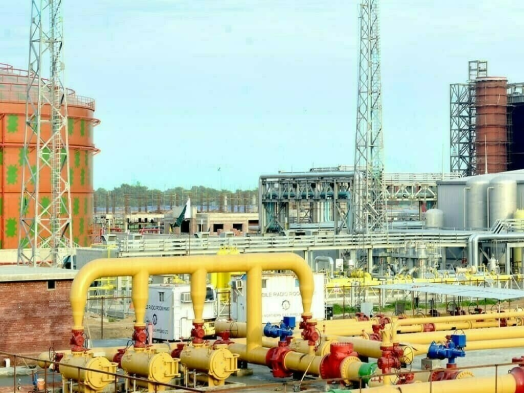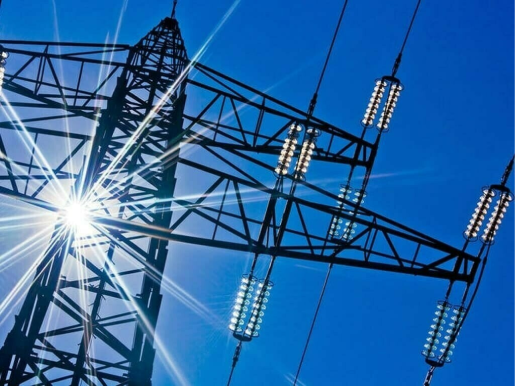Turkmenistan-Afghanistan-Pakistan-India gas pipeline is a regional connectivity project for supplying gas to fulfill the public demand from Turkmenistan to India’s Fazilka (Punjab). It is a great regional initiative proposed by the ADB and taken by four regional countries. The TAPI pipeline seems a bridge between South Asia and Central Asia. We know Central Asia is a huge source of natural gas. Pakistan and India need the gas. The project aims to monetise Turkmenistan’s gas reserves and supply them to neighbouring countries to promote the use of natural gas and improve energy security.
The regional connectivity gas pipeline will supply natural gas from Turkmenistan through Afghanistan into Pakistan and then to India. Construction on the project in Turkmenistan iwas naugurated on 13 December 2015, work on the Afghan section began in February 2018, and work on the Pakistani section was planned to commence in December 2018.
Work on the TAPI project in Afghanistan began in February 2016. 617 km of the pipeline was planned to pass through Afghanistan. But due to the internal situation, security in Afghanistan and India-Pakistan tensions, the connectivity project wasn’t implemented.
Although the Taliban’s takeover of Kabul has changed the geopolitics in the region, there are some issues where all regional countries can work together for ensuring mutual interests in the region. Although India was an active stakeholder in this project, now India’s position in this regard is not clear. But India should remain in this project for its own interest. There might be some bilateral problems with Pakistan, but that is not the issue. All regional states including India and Pakistan can work closely in the sector of trade and connectivity for ensuring the common greater interest. If this gas project can be extended to Bangladesh, Nepal, Bhutan in the near future, and all regional actors would benefit from the connectivity project. It is true that resumption of the TAPI pipeline project in Afghanistan brings new hope for the whole region
There was speculation whether the connectivity project would be completed finally at all. The Taliban’s takeover of Kabul on August 15 increased the speculation. Now the speculation is over. The region is going to see the implementation of the connectivity project that may bring prosperity for the region.
Work on Afghanistan’s part of the TAPI gas pipeline project from Turkmenistan to Afghanistan and India via Pakistan is about to begin soon. Afghanistan’s acting foreign minister, Amir Khan Muttaki, has said that work on Afghanistan’s part of the project would resume soon. He made the remarks at a news conference after a meeting with Turkmen Foreign Minister Rashid Meredov in Kabul on October 31.
The countries in the region should play a sincere role in cooperation in trade, economic cooperation, energy, counter-terrorism, disaster management, infrastructure and education for multilateral benefit. The TAPI gas pipeline and the CASA-1000 power transmission project would increase cooperation amongst the regional countries.
Muttaki said the two sides discussed strengthening political ties and economic ties during the Turkmen foreign minister’s visit. “Important issues like TAPI, rail connectivity and electricity have been discussed,” he said. We have discussed strengthening the projects that have already started.
The planned pipeline is 1,814 km long. It was to start supplying gas from Turkmenistan’s largest gas field in 2020. There were security concerns as the pipeline passed through war-torn Afghanistan. Turkmen gas will go to India and Pakistan through Afghanistan. Turkmenistan will export 33 billion cubic meters of gas every year.
The President of Turkmenistan said that this gas pipeline is important politically for the Central Asian countries. The pipeline was in question because of India’s relationship with Pakistan. But the Indian foreign secretary described the pipeline as a new chapter in cooperation between the four countries.
Pakistan is very interested to complete the project. Afghanistan, Pakistan and India would benefit from the gas pipeline connectivity project. Afghanistan’s interim government has already given the green signal to complete the project. Basically, this gas project would fulfill the demand of energy, electricity and gas in Afghanistan, Pakistan including India. The project was expected to create 20000 new employment opportunities. Implementation would mean Afghanistan alone got $1 billion as transit fee and royalty.
Pakistan will be the main customer of Turkmen gas. Pakistan has long suffered from energy shortages that affect families and businesses alike. Load shedding is a very common term in Pakistan now. That is why the supply of gas and electricity has become an integral part of the election manifestos of political parties.
The project will bring clean fuel to the growing economies of India It will provide energy-hungry India gas to run its power plants. TAPI’s uninterrupted gas flow will be extremely important for India’s energy sector.
There is an energy and gas crisis in Afghanistan, Pakistan and India. TAPI has the potential to solve their energy woes. The pipeline is expected to facilitate a unique level of trade and cooperation across the region, as well as support peace and security between the four countries. More than 1.5 billion people in Afghanistan, Pakistan and India are expected to benefit from the long-term energy security provided by the project. Also, the project is expected to increase Turkmenistan’s revenue through gas sales. Afghanistan and Pakistan will also benefit from transit fees.
Although the Taliban’s takeover of Kabul has changed the geopolitics in the region, there are some issues where all regional countries can work together for ensuring mutual interests in the region. Although India was an active stakeholder in this project, now India’s position in this regard is not clear. But India should remain in this project for its own interest. There might be some bilateral problems iwith Pakistan, but that is not the issue. All regional states including India and Pakistan can work closely in the sector of trade and connectivity for ensuring the common greater interest. If this gas project can be extended to Bangladesh, Nepal, Bhutan in the near future, and all regional actors would benefit from the connectivity project. It is true that resumption of the TAPI pipeline project in Afghanistan brings new hope for the whole region.





